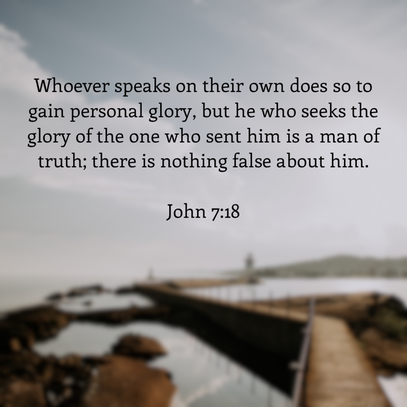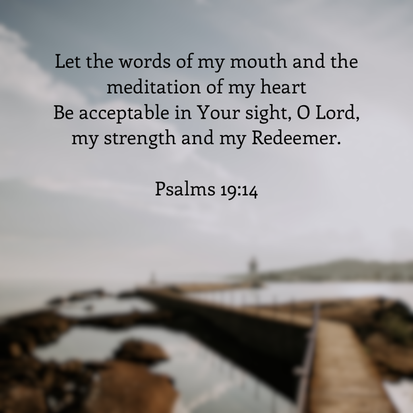|
Good morning!
We're so happy you chose to join us for the fourth Sunday of Advent!
Next Sunday will be Christmas! We plan to meet with whoever wants to come, read some selections together from the Christmas Ideals, and sing some carols.
When we meet in person, we share any joys or concerns from the past week. Consider your past week, and any prayer requests you may have. If you would like, you can share them in the comments. When you are ready, use the prayer below, from Sarah Martin, to get started.
Father, just as You sent John the Baptist to prepare the way for Jesus, help me to clear the path in my heart, too. Show me the distractions that block me from the worship of You this Advent. Lord, I await Your coming! As I celebrate the first Advent––the first coming––I look toward the day when I will see You face to face. I imagine what it will be like. Give me a heart, Lord, that looks for Your coming on a daily basis. Help me to live my life where I'm constantly seeking Your presence. My offering to You today is my righteous life for I know I am only clean because of Jesus. Show me how I must be refined, purified, and forgiven today. Give me the strength to ask for forgiveness and then change my ways. Amen
Today's lesson is on Luke 3:2b-6, 15-18. The other three gospels also tell the story of John the Baptist -- Matthew 3:1-12, Mark 1:1-8, and John 1:19-34; 3:22-36.
Lesson Context
John the Baptist came as the last prophet of Israel. The gospels describe him and his preaching as coming in the type of the prophet Elijah. Elijah was a prophet in the Old Testament who preached repentance mostly to the people in the northern kingdom of Israel. John the Baptist spent his formative years in the wilderness. Our book says some New Testament scholars propose that while in the wilderness, he may have been influenced by a Jewish sect called the Essenes. The members of this sect moved away from others, and lived in what we might think of as a monastic community. In their writings, primarily from the Dead Sea Scrolls, they seem to have been interested in preparing for the coming Messiah, and for the imminent end of the age. However, the Essenes were not mentioned in the New Testament. We read about John's birth in last week's lesson. After a break, Luke reintroduces John. His public ministry began during the fifteenth year of Tiberius Caesar's reign as Roman emperor (reigned 14 - 37 CE), probably 28 or 29 CE. Pontius Pilate was the governor of Judea. Herod Antipas was tetrarch of Galilee and Perea. Luke probably introduced the time referring to the Roman rulers because his intended audience was primarily Gentiles. The Jewish people lived under foreign occupation, and were waiting for the Messiah to free them.
1. The Prophet Appears
In the Old Testament, the word of God came to prophets and led them to action. A similar thing happened to John. He was in the lineage of Israel's priesthood as the son of Zechariah. John preached in the wilderness. The wilderness had served both as the backdrop for the chastisement of God's people and their renewal. John's work fulfilled his father's prophecy that John would, "give his people the knowledge of salvation through the forgiveness of their sins." Leaders of the first-century church continued to preach a message of repentance and baptism. The act of repentance requires that people acknowledge their sin and turn to God. The practice of water baptism to indicate spiritual cleansing did not start with John. The prophet Ezekiel described how water would metaphorically cleanse God's people from their moral impurities and would show the presence of God's spirit. The immersion of a person into water served as a way to Gentiles to signify their conversion into Judaism. John's baptism of repentance was preparatory in nature. Believers who received that baptism also needed to be baptized again, "in the name of the Lord Jesus," after his ascension. Luke quotes Isaiah 40:3-5: A voice of one calling: “In the wilderness prepare the way for the Lord; make straight in the desert a highway for our God. Every valley shall be raised up, every mountain and hill made low; the rough ground shall become level, the rugged places a plain. And the glory of the Lord will be revealed, and all people will see it together. For the mouth of the Lord has spoken.” All four gospels quote at least Isaiah 40:3. This shows that John's message fulfilled the Old Testament prophets. John was calling for repentance in the wilderness, with a message of hope to prepare the people. Luke quotes the entirety of the passage to illustrate the scope of God's salvation, which would have been important for his Gentile audience.
2. The Prophet's Identity
Expectations for the Jewish Messiah varied. Some expected the Messiah would be a military leader who would free the Jewish people from foreign oppression. Others anticipated that the Messiah would be a prophet like Moses. Our book notes that the title Christ is the Greek equivalent of Messiah, both of which mean, "the anointed one." Religious zealots at the time frequently attracted violent followers. Leaders considered zealous messianic expectations dangerous because they might lead to rebellion. The crowd was concerned with determining whether John was the Messiah. He had a following of disciples, who continued after his death. However, John denied he was the Messiah John said he was just the forerunner. The one coming would be more powerful. The baptism of fire would be one of the Spirit, to form one body of God's people. We can start to think of this with the tongues of flame at Pentecost. We can also think about the fire in terms of divine punishment. This goes along with the winnowing fork, which would separate the wheat from the chaff. The chaff would be burned. This was a warning: the coming Christ would remove impurity from among his people. John exhorted the people and also rebuked the political leaders of the day, particularly Herod Antipas. This eventually lead to John's beheading at the prompting of Herod's wife.
Conclusion
John came as a forerunner for Christ and a prophet to the people. He served the cause of Christ by baptizing people into a life of repentance and proclaiming the imminent arrival of God's salvation. Throughout the ministry of John the Baptist, he proclaimed good news, encouraged the downtrodden, and upset powerful leaders. Though scripture is mostly silent regarding his time in the wilderness, he came from that place with a message that would change the world. How might a wilderness experience prepare you to proclaim God's message of salvation through Jesus Christ? These experiences may cost you; wilderness experiences may not bring you a life filled with the world's measures of comfort, power, wealth, or honor. Instead, Jesus' followers are called to follow him and proclaim the good news of his salvation. In this sense, all believers prepare the world for the way of the Lord.
Prayer
God, as we wait for Jesus' return, show us how to prepare others to receive your salvation. Help us be attentive to the workings of your Spirit in our wilderness. In the name of Jesus. Amen.
Questions for Discussion
Benediction
This week's benediction is from the New International Version.
Next Sunday is Christmas Day! Our lesson will be on Luke 1:46-55.
0 Comments
Leave a Reply. |
AuthorWe are a small, rural Presbyterian church in southwestern Pennsylvania. Archives
July 2024
Categories
All
|



 RSS Feed
RSS Feed